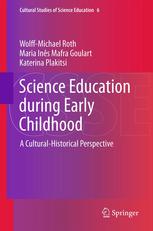

Most ebook files are in PDF format, so you can easily read them using various software such as Foxit Reader or directly on the Google Chrome browser.
Some ebook files are released by publishers in other formats such as .awz, .mobi, .epub, .fb2, etc. You may need to install specific software to read these formats on mobile/PC, such as Calibre.
Please read the tutorial at this link: https://ebookbell.com/faq
We offer FREE conversion to the popular formats you request; however, this may take some time. Therefore, right after payment, please email us, and we will try to provide the service as quickly as possible.
For some exceptional file formats or broken links (if any), please refrain from opening any disputes. Instead, email us first, and we will try to assist within a maximum of 6 hours.
EbookBell Team

0.0
0 reviewsChildren’s learning and understanding of science during their pre-school years has been a neglected topic in the education literature—something this volume aims to redress. Paradigmatic notions of science education, with their focus on biologically governed development and age-specific accession to scientific concepts, have perpetuated this state of affairs. This book offers a very different perspective, however. It has its roots in the work of cultural-historical activity theorists, who, since Vygotsky, have assumed that any higher cognitive function existed in and as a social relation first. Accepting this precept removes any lower limit we may deem appropriate on children’s cognitive engagement with science-related concepts.
The authors describe and analyze the ways in which children aged from one to five grapple with scientific concepts, and also suggest ways in which pre-service and in-service teachers can be prepared to teach in ways that support children’s development in cultural and historical contexts. In doing so, the book affirms the value of cultural-historical activity theory as an appropriate framework for analyzing preschool children’s participation in science learning experiences, and shows that that the theory provides an appropriate framework for understanding learning, as well as for planning and conducting training for pre-school teachers.